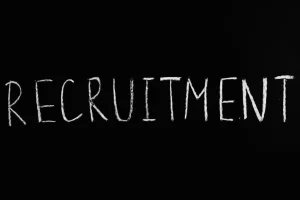Pharmacist Life in Norway: Life, Jobs, Salary, Registration
Pharmacists in Norway enjoy competitive compensation packages, robust professional standards, and diverse career opportunities within a well-structured healthcare system. The Norwegian pharmacy sector offers significant financial benefits while maintaining high qualification requirements to ensure quality pharmaceutical care across the country. This report examines the comprehensive salary landscape, registration requirements, and professional environment for pharmacists in Norway.
Pharmacist Salary Overview in Norway
The compensation structure for pharmacists in Norway is notably generous, reflecting the country’s high standard of living and the valued role pharmacists play in the healthcare system. Salary ranges vary based on several factors including experience, education, location, and specialization.

Average Salary Figures
A pharmacist working in Norway typically earns around 777,000 NOK per year, with salaries ranging from 358,000 NOK at the entry level to 1,240,000 NOK at the highest end of the spectrum. The median salary sits at approximately 743,000 NOK, meaning half of all pharmacists earn above this amount while half earn below. Another analysis places the average annual salary at 778,800 NOK, with a similar range between lowest and highest averages.
Some sources indicate even higher figures, with one salary survey suggesting the average pharmacist compensation reaches 1,018,296 NOK annually (approximately 490 NOK per hour). This variation likely reflects differences in data collection methodologies and the inclusion of different benefits packages.
Experience-Based Salary Progression
Experience significantly impacts pharmacist earnings in Norway, with clear salary increases corresponding to years in the profession:
| Experience Level | Average Annual Salary |
|---|---|
| 0-2 Years | 406,000 NOK |
| 2-5 Years | 542,000 NOK (+34%) |
| 5-10 Years | 801,000 NOK (+48%) |
| 10-15 Years | 977,000 NOK (+22%) |
| 15-20 Years | 1,060,000 NOK (+9%) |
| 20+ Years | 1,150,000 NOK (+8%) |
This progression demonstrates that pharmacists can expect substantial salary growth in the first decade of their careers, with increases moderating somewhat after reaching the 15-year mark.
Educational Impact on Compensation
Education level creates a significant difference in earning potential for Norwegian pharmacists:
- Pharmacists with a Bachelor’s degree earn an average of 472,100 NOK annually
- Those with a Master’s degree earn approximately 912,800 NOK – representing a 93% increase over Bachelor’s degree holders
This substantial difference makes pursuing advanced education financially worthwhile for pharmacists in Norway, with the potential to recover educational investment costs within approximately one year.
Regional Salary Variations
Location within Norway affects pharmacist salaries, with Oslo offering higher compensation than the national average:
- Average pharmacist salary in Oslo: 1,081,631 NOK
- This represents an 8% premium (approximately 79,948 NOK more) compared to the national average
The higher salaries in Oslo likely reflect the increased cost of living in the capital, which is approximately 25% higher than the national average.
Gender Pay Gap
Despite Norway’s reputation for gender equality, a modest gender pay gap exists in the pharmacy profession:
- Male pharmacists: 793,800 NOK average annual salary
- Female pharmacists: 762,600 NOK average annual salary
- This represents approximately a 4% difference in compensation
Pharmacy Technician Salaries
For context, pharmacy technicians in Norway earn significantly less than pharmacists:
- Average pharmacy technician salary: 318,284 NOK annually (153 NOK hourly)
- Certified pharmacy technicians: 414,384 NOK annually (199 NOK hourly)
Registration Requirements for Pharmacists in Norway
Working as a pharmacist in Norway requires meeting strict regulatory and professional standards. The requirements differ somewhat depending on whether applicants trained within or outside the EU/EEA.
Qualification Recognition Process
The qualification recognition process involves several key steps:
- Initial Application to NOKUT: Foreign-trained pharmacists must first apply to the Norwegian Agency for Quality Assurance in Education (NOKUT) for general recognition of their higher education credentials.
- Documentation Submission: Detailed documentation including degree certificates, transcripts, and course descriptions are required, with English translations if the originals are in other languages.
- Professional Qualification Assessment: After NOKUT’s assessment, candidates must undergo a pharmacy-specific evaluation by the Norwegian Directorate of Health (Helsedirektoratet) council.
- Supplementary Education: Depending on assessment results, supplementary education or practical training may be required to meet Norwegian standards.
Registration Fees and Processing
The Norwegian pharmacist registration process includes administrative costs:
- Registration fee: approximately 1,665 NOK
- Payment can typically be made online via credit card
- Processing times vary, but applicants should plan for several months before relocating to Norway
Language Requirements
Norwegian language proficiency is essential for practicing pharmacy in Norway:
- Required proficiency level: B2 or higher on the Common European Framework of Reference (CEFR)
- Accepted tests: Bergenstesten (Test in Norwegian – Advanced Level) and Norskprøven (Norwegian Language Test)
- Passing score for Bergenstesten: 450 or higher
- Passing score for Norskprøven: B2 level in listening, reading, writing, and speaking
Special Requirements for Non-EU Pharmacists
Pharmacists with education from countries outside the EU/EEA face additional requirements to for registration:
- Completion of courses in “national subjects” (Kurs i nasjonale fag)
- These courses are organized by Folkeuniversitetet on behalf of the Norwegian Directorate of Health every spring and fall
- Possible requirements for supervised practical training in Norway
Residency and Work Permits
Different residency requirements apply based on citizenship:
- EU/EEA/EFTA nationals do not need a residence permit but must register with the police
- Non-EU nationals generally require a residence permit
- A work permit typically requires a job offer from a Norwegian employer
The Norwegian Pharmacy Sector
The pharmacy industry in Norway operates under well-established professional organizations and regulatory frameworks that support the profession.
Professional Organizations
The Norwegian pharmacy sector is represented by two main professional bodies:
- Norwegian Pharmacy Association (Apotekforeningen):
- Founded in 1881
- Represents all Norwegian pharmacies
- Focuses on professional development, legislative frameworks, and e-health services
- Includes the three major pharmacy chains, hospital pharmacies, and independent pharmacists
- Norwegian Association of Pharmacists (Norges Farmaceutiske Forening):
- Functions as both a trade union and professional association
- Aims to secure members’ financial, social, and professional interests
- Promotes high standards of professional skills and ethics
- Takes an active role in developing the profession and addressing health policy issues
Pharmacy Employment Structure
The pharmacy market in Norway is primarily organized into:
- Major pharmacy chains (Apotek 1, Boots apotek, and Vitus apotek)
- Hospital pharmacies
- Independent pharmacies
Career Opportunities for Pharmacists
Pharmacy professionals in Norway can pursue various specialized roles, including:
- Community Pharmacist
- Hospital Pharmacist
- Clinical Pharmacist
- Pharmaceutical Industry Professional
- Academic and Research Positions
- Regulatory Affairs Specialist
- Pharmacy Manager
- Public Health Pharmacist
- Consultant Pharmacist
- Quality Control Analyst
- Medical Information Specialist
- Pharmaceutical Sales Representative
Employment Outlook and Working Conditions
The employment landscape for pharmacists in Norway offers stability with positive growth prospects.
Job Market Conditions
Pharmacists experience favorable employment conditions in Norway:
- Unemployment rate for pharmacists is significantly lower than the national average
- Nursing has the highest demand, but pharmacy is also a high-demand profession
- Average annual pay across all professions in Norway is close to 570,000 NOK, making pharmacy a well-compensated field
Recruitment Initiatives
Active recruitment of international pharmacists is ongoing:
- Apotek 1, one of Norway’s major pharmacy chains, actively recruits foreign pharmacists
- They offer language courses with financial support for right candidates
- Relocation support is available for successful applicants
- Positions are available throughout Norway, including in remote areas
Work-Life Balance and Benefits
Norwegian pharmacists typically enjoy:
- Regular pay increases (approximately 12% every 16 months)
- Bonus potential (61% of pharmacists report receiving bonuses ranging from 2–7%)
- Public sector employment offering approximately 5% higher compensation than private sector
- Comprehensive benefits reflecting Norway’s strong social welfare system
The average pharmacist salary in Norway per month is around 64,750 NOK, based on the annual average of 777,000 NOK. This makes the salary of a pharmacist in Norway one of the most competitive in Europe. Whether you’re looking into pharmacist jobs in Norway, exploring pharmacy technician salaries, or planning to complete your pharmacist registration in Norway, the country offers strong professional and financial incentives for pharmacy professionals. Additionally, while Norway does not have a single entity named “Norway Pharmacy Council,” relevant regulatory bodies like NOKUT and the Norwegian Directorate of Health serve this function by overseeing professional standards and licensing.
For international pharmacists considering relocation to Norway, the registration process is structured but demanding, particularly regarding language requirements and qualification recognition. Non-EU candidates face additional requirements, including completion of courses in Norwegian national subjects.
The pharmacy sector in Norway is well-organized under professional associations that advocate for pharmacists’ interests while maintaining high professional standards. Job prospects remain favorable with unemployment rates below the national average, and various specialized career paths are available within the profession. Major pharmacy chains actively recruit international talent, offering language training and relocation support for qualified candidates.
Overall, Norway presents an attractive destination for pharmacy professionals seeking competitive compensation, professional development opportunities, and high quality of life within a socially progressive society.





